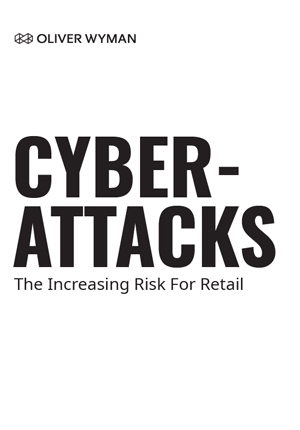Cyberattacks are an unfortunate reality and major source of damage in today’s digitally focused business environment. Successful cyberattacks have the potential to cripple companies through significant legal fines, reputational repercussions, and overall financial strain. The financial impact of attacks on retailers have reached hundreds of millions in the past. As retailers increasingly shift to a digital environment — and particularly as COVID-19 accelerates online purchasing — it is more important than ever for retailers to invest adequately in cybersecurity safeguards.
In the past few years, disruptive cyberattacks on retailers have become more common. These companies had implemented advanced cybersecurity measures in some cases, but professional hackers nonetheless were able to install malware to harvest confidential customer payment information, resulting in a massive breach of customer data. According to Bloomberg, nearly 400 million customer records were exposed through the attacks on these companies.
Compared to other industries, retail is more vulnerable to cyberattacks due to the nature of its online traffic and the design of its e-commerce websites. To encourage customer spending, user-friendliness is a top priority in the design of retail website, and robust security can be seen in conflict with making online shopping a pleasurable experience. The fear is that robust security measures can make the purchasing process seem time consuming and difficult, driving customers to abandon purchases. As a result, many retailers have shied away from implementing important best practices, such as two-stage purchase verification. This reticence only serves to increase the likelihood that retailers will be a prime target for hackers — increasing the need to act now to implement cybersecurity best practices.
Download the report to learn more.
